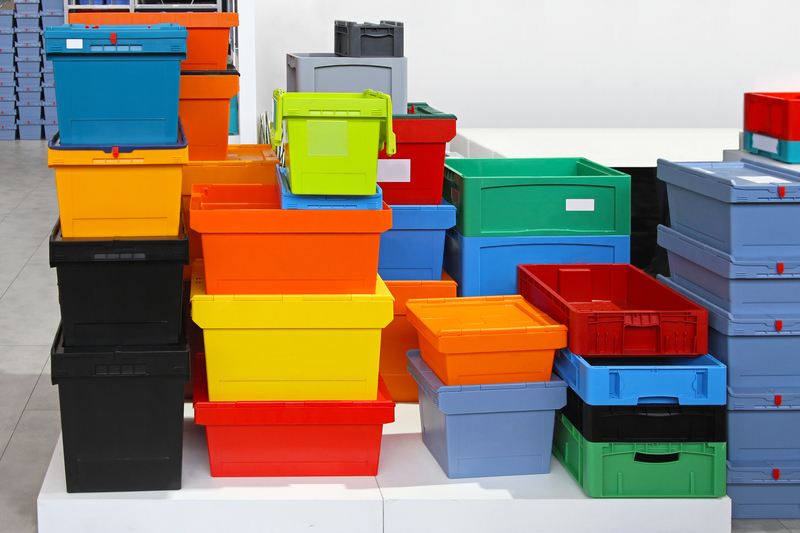How to Ensure Your Freezer Stays in Great Condition Unused
Posted on 17/05/2025
How to Ensure Your Freezer Stays in Great Condition Unused
When it comes to preserving food, few appliances are as invaluable as a freezer. But what happens when you find yourself with an unused freezer--for weeks, months, or even longer? Whether you’re preparing for a long trip, emptying the garage, or storing a backup appliance, it’s important to maintain your freezer’s condition even while it’s not in use. Neglecting an idle appliance can lead to unpleasant odors, mold, pest infestations, and even mechanical problems down the line. How can you make sure your unused freezer stays in top-notch shape? This comprehensive guide will walk you through every step of the process, ensuring your freezer remains dependable and durable, even during periods of inactivity.

Why Is It Important to Maintain an Unused Freezer?
Many homeowners assume that if a freezer is not plugged in or used, it’s safe to simply ignore it. However, idleness can actually cause damage, deterioration, or unexpected issues. Proper freezer maintenance ensures that your appliance remains clean, energy efficient, and safe to use whenever you need it again.
- Prevents bad odors: Food residue, moisture, and bacteria can give rise to unpleasant smells.
- Reduces risk of mold and mildew: Dark, damp conditions are perfect for mold growth.
- Keeps pests away: Insects and rodents can find refuge in unused freezers.
- Extends lifespan and efficiency: Well-kept freezers last longer and are ready to work as needed.
- Saves on repair costs: Maintenance now can prevent costly fixes or replacements later.
Step-by-Step: How to Keep Your Freezer in Great Condition When Not in Use
1. Unplug the Freezer
If you plan to leave the appliance unused for a significant period (a few weeks or longer), the first and most crucial step is to safely unplug your freezer. This prevents the unnecessary use of electricity and reduces fire hazards.
- Remove all food and perishables.
- Switch off the power using the wall outlet or circuit breaker.
- Always ensure your hands are dry before touching the plug.
2. Thoroughly Clean the Freezer Inside and Out
Stains, crumbs, and liquids can attract mold, bacteria, and pests while the freezer sits idle. Deep clean every surface to prevent these problems.
- Remove shelves and bins: Wash these with warm, soapy water. Rinse and dry completely.
- Wipe down interiors: Mix a solution of water with mild dish soap or baking soda, then clean all surfaces. Don’t forget the gaskets and corners!
- Deodorize: Sprinkle baking soda inside and let it sit for a few hours before wiping clean.
- Clean the exterior: Dust off the compressor, coils, and door. For stainless steel, use an appropriate cleaner.
3. Defrost the Freezer Completely
If your unit is a chest or upright freezer that isn’t frost-free, you’ll need to remove all ice build-up. Excess ice can melt, causing water damage, odors, and rust if the freezer stands unused.
- Switch off and unplug the freezer.
- Place towels around the base to absorb melting ice.
- Prop open the door to speed up the process
- Never use sharp objects to chip away ice, as this can damage vital parts.
4. Dry the Freezer Thoroughly
Moisture is your enemy when storing an unused freezer. After cleaning and defrosting, leave the door open and let the inside air dry completely for at least 24 hours. Moist environments encourage mold, mildew, and rust.
- Use a clean, dry towel to wipe every surface.
- Allow the appliance to air out in a well-ventilated space.
- A small fan can help speed up the drying process.
5. Prevent Odors With a Natural Deodorizer
Even a well-cleaned and dried freezer can develop odors during periods of inactivity. Place an item inside to absorb moisture and odors:
- Open box of baking soda
- Small bowl of activated charcoal
- Coffee grounds in a breathable pouch
These natural odor absorbers will ensure the freezer smells fresh and clean when you use it again.
6. Keep the Door Ajar to Allow Air Circulation
Never fully seal an unused freezer. Closing the door tight traps residual moisture and can create a breeding ground for mold or bad smells.
- Use a rolled-up towel, piece of foam, or a door prop to keep the door slightly open--about an inch is sufficient.
- If your freezer has a lock, leave it unlocked and slightly open.
- For chest freezers, a stick or dowel can help keep the lid propped up.
*Keeping the door slightly ajar promotes airflow and prevents unpleasant surprises later.*
7. Store in a Suitable Location
The environment in which your unused freezer sits matters. Storage in an area that is:
- Cool and dry: Avoid basements prone to flooding or garages with extreme humidity/temperature swings.
- Clean: Remove dust, debris, and weeds from around the appliance.
- Rodent and pest-free: Check for cracks, holes, or food sources near your storage spot.
Never store a freezer outdoors or in direct sunlight. Excess heat and moisture can significantly damage electrical components over time.
8. Protect the Freezer from Dirt and Damage
Covering your unused freezer helps shield it from dust, dirt, and accidental scratches. But never use airtight covers! These can trap moisture inside.
- Use a breathable canvas or cotton dust cover.
- A simple bed sheet works well for indoor storage.
- Avoid plastic tarps or shrink wrap unless the environment is extremely dry and the door is left ajar.
9. Inspect Regularly for Problems
Don’t just walk away and forget about your freezer. Check in every month or two to spot issues early.
- Look for signs of mold, mildew, or bad smells.
- Check that the deodorizer is still effective (replace it if needed).
- Verify the door remains propped open and not sealed shut.
- Watch for pests or rodent activity.
The sooner you catch a problem, the easier and less costly it is to resolve!
Preparing an Unused Freezer for Future Use
When you’re finally ready to put your freezer back into action, don’t simply plug it in and fill it with food. Instead, follow these steps to ensure optimal performance and food safety.
- Remove the deodorizer and door prop.
- Give the freezer a quick cleaning with a damp, soapy cloth.
- Plug it in and allow it to cool for several hours until the interior is properly cold.
- Check the gaskets and seals for cracks, tears, or deformations before loading food.
- Inspect for odors, pests, or moisture one last time.
Pro Tips for Maintaining Freezer Condition Unused for Extended Periods
- Label and document: Tape a note or checklist to the exterior with the cleaning date and any stored items inside.
- Consider pest deterrents: If in a garage, attic, or shed, use natural rodent repellents in the area.
- Use surge protectors: For freezers left plugged in but unused, a surge protector safeguards against power spikes while idle.
- Don't store objects on top: Heavy items can dent the lid or block air circulation if you prop it open.
- Keep away from corrosive chemicals: Avoid placing the appliance near cleaning supplies, fertilizers, or paint thinners.
Common Mistakes to Avoid with Unused Freezers
Even a small oversight can lead to big problems if your freezer sits idle! Here are mistakes to avoid:
- Leaving food or crumbs inside (this attracts pests and leads to odors)
- Sealing the door shut (mold and mildew thrive without air circulation)
- Storing outdoors or in damp areas (water and humidity can cause rust and electrical damage)
- Neglecting regular checks (problems multiply if unnoticed!)
- Forgetting to unplug the freezer if unused (wastes energy and increases safety hazards)

FAQs: Keeping Your Freezer in Top Shape While Unused
Can I leave my freezer plugged in but empty?
You can, but it isn’t necessary unless you’re in a humid environment or plan to store the appliance for only a few days. It wastes electricity and may dry out gaskets or cause other issues. For long-term storage, cleaning and unplugging is the preferred method.
Will mold grow in an unused freezer?
Yes, if there is moisture and the door is left sealed, mold and mildew can develop. This is why drying thoroughly and propping the door open is crucial.
What should I do if my unused freezer smells bad when I open it?
Deep clean with baking soda or vinegar solution, dry thoroughly, and replace the deodorizer. If the smell persists, check for hidden food debris or mold in gaskets and corners. Air out the freezer for several days.
Should I defrost my freezer before storing it unused?
Absolutely! Ice can melt and lead to water damage or odors, so it’s always best to defrost before storing the freezer unused.
Conclusion: Keep Your Unused Freezer in Prime Condition
Storing a freezer for a brief or extended period of inactivity doesn’t have to lead to problems. With a few careful steps--cleaning, drying, deodorizing, and regular checks--you can ensure your appliance remains ready for use and in excellent condition. Remember, a little proactive care now means less hassle, fewer repairs, and a longer life for your trusty freezer. Practice these best freezer maintenance tips for unused appliances and enjoy peace of mind whether your freezer is used every day or just for emergencies.
Latest Posts
How Decluttering Eases the Moving Process
Convenient Approaches to Shift Your Bed and Mattress
What to Know About Storing a Freezer Temporarily







